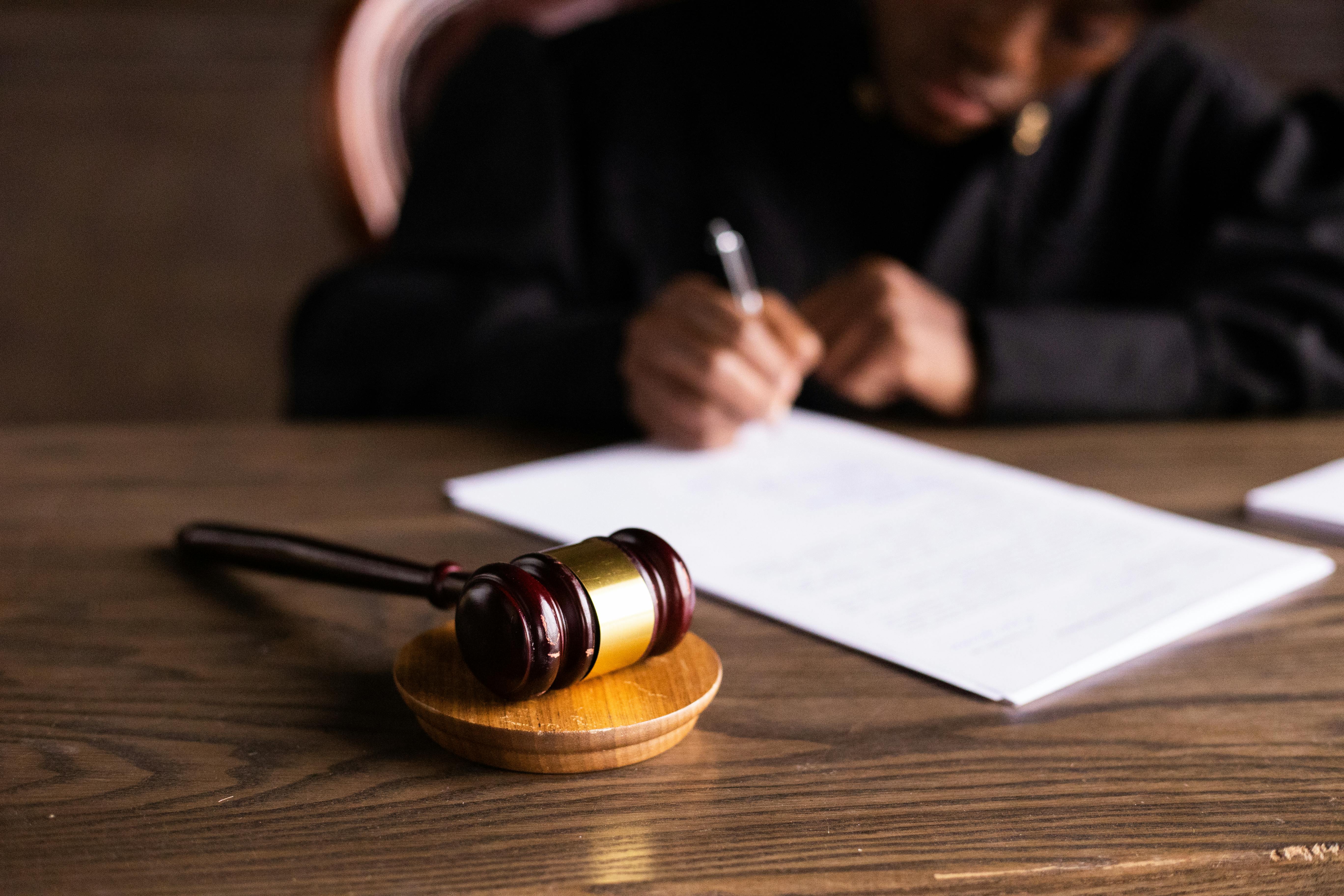Lawyers are trained to litigate and negotiate. Investigators are trained to investigate.
An article by Lisa Stansky noted: “…Investigators are often more successful than lawyers in gathering information from people…”
The New Hampshire Supreme Court also recognized the value of a professional investigation in a child custody matter.
“The evidence offered regarding Plaintiff’s lack of proper supervision and care of the children was overwhelming…a private investigator proved that when he observed Plaintiff on ten different nights, Plaintiff left the children alone overnight on six occasions while visiting a male friend… Furthermore, the investigator’s report indicated that after the first day of the hearing, the claimant continued her pattern of leaving the children alone overnight.”
There are some laws that apply directly to researchers. Most, but not all, researchers are aware of these laws; the lawyer should also know them.
RSA 106-f: 4
Any research, for a fee, requires a license in New Hampshire. The statute that governs these activities is RSA 106-f: 4. What is regulated is the activity, not the title of the provider. There are several entities that conduct various investigations in New Hampshire, without a license. The license means, among other requirements, that there is a bond of $50,000.00 on file with the State. No license = no bond = no public protection. A license is required to perform the following services:
“Business of collecting for a fee, hiring, or rewarding information about the identity, conduct, movements, whereabouts, affiliations, transactions, reputation, or character of any person, or performing investigative work for a private rather than public interest. 106-F: 4II
DUTY OF THE INVESTIGATOR
The New Hampshire Supreme Court stated that investigators can be held liable for the actions of their clients, even if the action is a crime.
“Therefore, if the disclosure of information to a client by a private investigator or information broker (collectively “investigator”) creates a foreseeable risk of criminal conduct against the third party whose information was disclosed, the investigator has a duty to exercise reasonable care not to subject the third party to an unreasonable risk of harm.
TELEPHONE CALL RECORDS
An out-of-state investigator was recently ordered to forfeit more than $110.00.00 in profits he made after obtaining records of phone calls under the pretense. For a long time this was a gray area. Recent federal legislation makes this illegal, but there are still services that offer to do it, they just leave out the pretense part of their advertising.
TRACKING AND INVESTIGATION
The GLB (Gramm-Leach-Bliley Act) is a law that governs activities to access certain data sources that are used to do background or skip tracking for law firms. A person must have a purpose permitted under the GBL to access the data, such as credit headers. Cannot be resolved to the public.
The GLB also restricts the pretense of obtaining financial information, but leaves room for work involved in recovering funds from delinquent parents.
DMV
Accessing DMV information is more difficult here than in other states. Federal law, the Driver’s Privacy Protection Act, allows “prior to litigation” access. Unfortunately we don’t follow that and RSA 260:14 is much more restrictive. You need not only a file number, but also a cover letter that describes what you need and why you need it. Intrusive, but it’s the law.
MONITORING VS. STALKING
Clandestine surveillance is permitted under RSA 106-f. Note the legal term “clandestine.” Theoretically, bullying shouldn’t be an issue, but it became one in the Miller V. Blackden decision. Surveillance is an exception to the stalking law, if done correctly. It is not stalking as long as the activity is “necessary to achieve a legitimate purpose independent of making contact with the targeted person.” (633:3-a)
Clearly, clandestine surveillance is protected here and that is what the Legislature wanted. It is ‘in your face’ surveillance, not so clandestine, which is prohibited under certain circumstances. The investigator has the burden of proving that it has a lawful purpose. The lawyer should be aware of this when assigning surveillance to an investigator.
The New Hampshire League of Investigators, Inc. (WWW.NHLI.NET) is working with the Coalition Against Domestic and Sexual Violence to ensure this is done and that training becomes part of the new investigator licensing scheme.
INTERVIEWS
An investigator may contact a victim of domestic violence, if working for an attorney, if the investigator:
1. Identifies yourself as a representative of the defendant.
2. Acknowledges the existence of the protection order.
3. Inform the plaintiff that he is not required to speak.
4. Terminate contact with the complainant if the complainant expresses an unwillingness to talk.
5. Ensures that any personal contact with the plaintiff occurs outside of the respondent’s presence, unless the court has modified the protection order to allow such contact.” (633: 3-a).
Make sure your investigator knows this.
CONSUMER PROTECTION LAWS
This applied to the investigators in the Remsburg decision, specifically in the area of ”any unfair or deceptive act or practice in the conduct of any trade within this state.” (RSA 358-a)
Accordingly, we conclude that an investigator who obtains a person’s work address through pretextual phone calls and then sells the information may be liable for damages under RSA chapter 358-A to the misled person.
PRIVACY
Investigators can serve the public and still maintain people’s privacy when asked to locate former friends, comrades in the military, roommates, and estranged family members. After obtaining the client’s identifiers, the investigator attempts to locate the subject. If successful, he or she contacts that subject and asks him or her to contact the client, stating the reason and not revealing the person’s whereabouts to the client.
Eavesdrop
This is a simple problem. New Hampshire is a bipartisan state, so no conversation in person or over the phone can be recorded without the consent of all parties. A verbal waiver must be part of every recorded interview that an investigator does for you.
ABANDONED PROPERTY SEARCHES
This is a form of data mining, performed on abandoned property, also known as Dumpster Diving. As with many other things, New Hampshire treats this differently. In State V Goss, the Supreme Court addressed the owner’s intent to protect his trash from a search, citing that seizing it without a warrant was a constitutional violation.
While this does not directly affect licensed researchers, it does indirectly if the concept were to move to the private sector. While the trash may be off the property and abandoned, it is the owner’s intention that it be destroyed, not that the data be extracted.
FCRA
Pre-employment screening is addressed here. The investigator must have an employee waiver on hand and all inquiries must follow FCRA guidelines. These guidelines establish other rules and procedures that the employer must follow with respect to adverse actions and other employment-related decisions.
WARRANTY RECOVERY
It seems that any towing service can recover a vehicle for a bank. (RSA 367-A: 7VIII)
(4) by which a seller or contract holder, or another person acting on their behalf, is authorized to illegally enter the buyer’s premises, or to commit any disturbance of public order in the recovery of a motor vehicle; (5) whereby buyers waive any right of action against the seller or contract holder, or another person acting on their behalf, for any unlawful act committed in the collection of payments under the contract or in the repossession of the vehicle motor;
They have to notify the police within a few hours of doing so. (RSA262: 3-A) However, to do research to find the warranty, if it is not in the specific place, a license is required. RSA 106-F: 4
ETHICS
Ethical conduct is not addressed in the current licensing scheme, so no adverse action can be taken for unethical or unprofessional conduct. The New Hampshire League of Investigators, Inc. (WWW.NHLI.NET) is trying to change that with HB 776, which will add tests to obtain a license, mandatory Continuing Education to renew it, and a definition of ethical conduct to give to the Board and Agency (Security Department) some tools for compliance; better public protection through higher standards.
REASON FOR THE ARTICLE
For the lawyer/investigator relationship to thrive, both parties must be aware of the laws that govern investigative activity. I have been an investigator for many years and a member of The New Hampshire League of Investigators, Inc during that time. I am your former president. Our members are aware of these laws through our publication, our website, and our training. Unfortunately, I still run into non-members, licensed researchers, asking questions like, “GLB…what is that?” The Miller v Blackden decision is another scenario that can be avoided by knowing the law.
FIND A RESEARCHER
In addition to the educational opportunities available, members of the League of New Hampshire Researchers, Inc. agree, in writing, to adhere to its Code of Professional Conduct. Membership in the Association is the hallmark of the professional investigator in New Hampshire.


